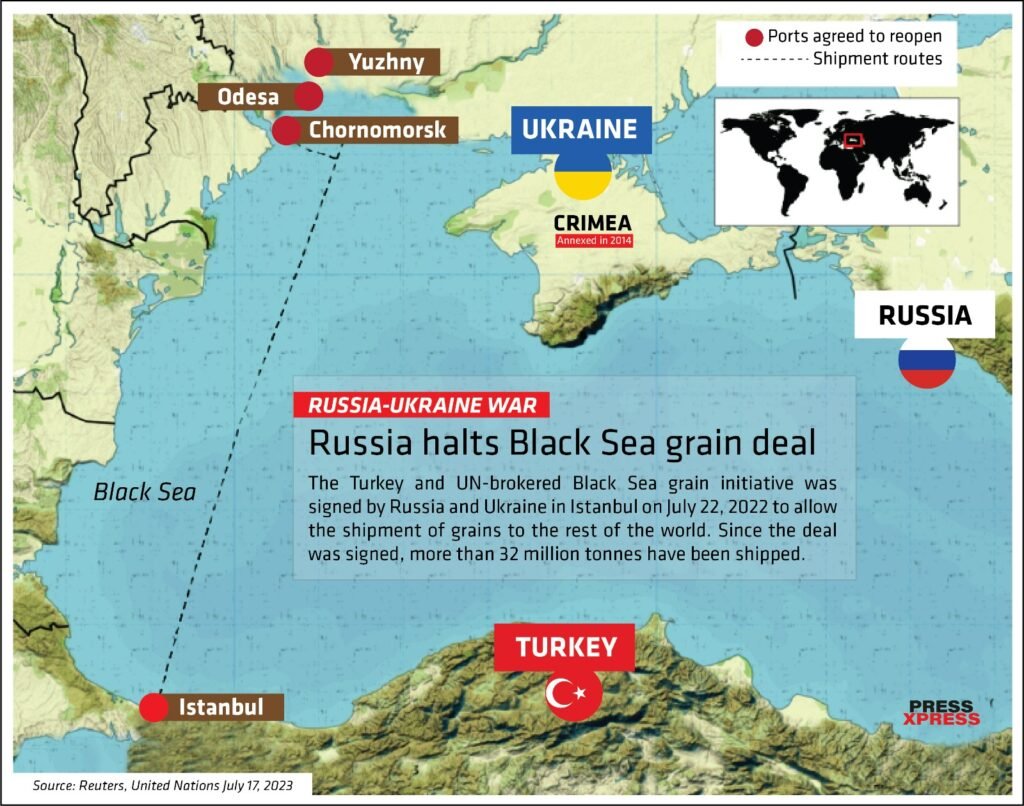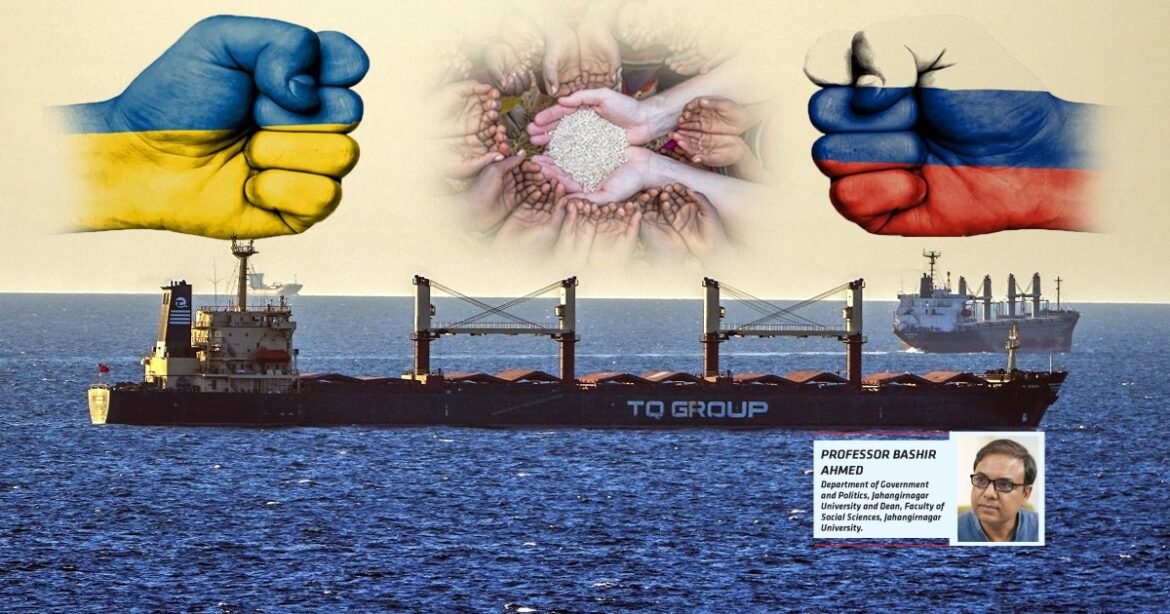Food insecurity affects about a billion people worldwide, making it difficult for households to consistently have access to enough food for each member to have an active, healthy life. Apparently, 32.9 million metric tonnes of food have been allowed to be shipped from war-torn Ukraine according to the Black Sea Grain Initiative, a deal mediated by the United Nations and Turkey between Russia and Ukraine.
Read more at: Why voters still back Trump for 2024 despite potential criminal charges
Ukraine’s exports fell to one-sixth of their prewar level as a result of Russia’s full-scale invasion of Ukraine on February 24 which resulted in a de facto blockade of the Black Sea. The blockade has substantially increased grain prices and Kyiv and Moscow are two of the biggest grain exporters in the world. Injecting additional wheat, sunflower oil, fertilizer, and other products into the global market, as well as providing for humanitarian needs, was the goal of the agreement to prevent famine
Dissemination of the Black Sea grain deal
According to the deal, a combination of Turkish, Ukrainian, and UN personnel watched as grain was loaded into ships in Ukrainian ports before traversing a path that had been carefully prepared through the highly mined Black Sea used by Ukrainian and Russian soldiers. Using a plan of safe passages provided by the Ukrainian side, Ukrainian pilot vessels led commercial vessels bringing the grain across the mined regions near the coastline. The ships were then closely watched as they crossed the Black Sea into Turkey’s Bosphorus Strait by a joint coordination center in Istanbul that included representatives from the UN, Ukraine, Russia, and Turkey.
Sunflower, maize, wheat, and barley are among the most exported goods from Ukraine. Due to Russia’s blockade, 20 million tonnes of grain were stuck in its Black Sea ports. As a result, food costs globally increased. Food shortages also appeared to be a possibility in numerous Middle Eastern and African nations that primarily depended on grain shipments from Ukraine.
According to the UN Food and Agriculture Organization, after the agreement was finalized and grain supplies resumed, food costs worldwide decreased by almost 20%. The same joint coordination center oversaw inspecting ships coming into Ukraine to make sure they were not armed. About 10% of Ukraine’s grain exports have been crossing the land border with Poland since the war began. However, if it exports more grain via this route, there might be traffic congestion.

Every trainload of grain must be moved from one set of wagons to another at the border since Ukraine’s railways have a different gauge than those in the rest of Europe. Additionally, the Eastern European rail network lacks the capability to convey even the relatively small quantities of grain that Ukraine has been exporting by way of the Baltic ports and Constanta.
Price reductions and an end to the world food crisis have been made possible by the current agreement. Wheat prices, the primary component of bread, have decreased by around 17% so far this year, while corn prices have decreased by about 26%. Ukrainian grain, which made up 725,200 tonnes, or 2.2 percent of the supplies, delivered through the corridor used by the World Food Programme (WFP) to provide help to nations like Ethiopia, Somalia, and Yemen, has directly contributed to relieving the global food crisis.
The grain deal is deemed a “lifeline for the 79 countries and 349 million people on the front lines of food insecurity” by the International Rescue Committee. According to the UN, however, as of Monday, about 8 million tonnes of commodities had been sold to China, accounting for nearly 25% of the 32.9 million tonnes exported, with nearly 44 percent of exports going to high-income nations.
Why Russia is suspending the deal?
Russia’s claims that the requirements for the deal’s continuation had not been met had been made clear for months. Vladimir Putin, the president of Russia, stated last week that he desired an end to the restrictions imposed on the Russian Agricultural Bank. The restart of the Togliatti-Odesa ammonia pipeline, the relaxation of limitations on insurance and reinsurance, the unblocking of Russian enterprises’ assets and accounts, and the supply of agricultural machinery and parts are among the additional requests.
Prior to the agreement being struck in July of last year, Ukraine’s ports were closed, and it is still unknown if it would be possible to ship grain after Russia withdrew. Shipowners may be reluctant to permit their vessels to enter a war zone without Russia’s consent due to projected increases in the war risk insurance rates that are charged when entering the Black Sea region. Every seven days, war risk insurance covers for ships must be renewed, which costs thousands of dollars.
Despite Turkey’s efforts to mediate, the head of the North Atlantic Treaty Organization (NATO) has condemned Russia’s decision to renege on the Black Sea grain agreement. US Secretary of State Antony Blinken criticized Russia’s decision to stop taking part in the agreement, which has been in place for a year and allows Ukraine to export grain through the Black Sea, as “unconscionable” and demanded that the agreement be reinstated as soon as possible. As a result of Russia’s effort today to weaponize food, he predicted that prices would increase and food would become more difficult to obtain in areas that urgently needed it.
To me, the deal, which was mediated by the United Nations and Turkey and included numerous extensions, was successful in easing the world food crisis. Russia has been claiming for months that the requirements for the extension had not been met, and they ultimately withdrew the action, which will undoubtedly have a severe influence on the world’s food security.
Experts agreed that the suspension by Russia of the Black Sea grain agreement, which has permitted grain exports from Ukraine, will worsen food security and harm millions. Turkey and the UN must continue their efforts to persuade Russia to adhere to this accord. We demand that the Russian government immediately rescind its decision. It is possible to persuade very friendly nations of Russia, and other members of the same alliance, to change their minds and maintain the grain agreement for the benefit of global food security.


